With travel bans still implemented in many countries, Etihad Airways and Qatar Airways share how they are responding through the collapse amid the pandemic.
This year, we have witnessed a staggering slump in the number of travelers and passengers across airlines. Frequent fliers have rescheduled their summer and holiday trips or ultimately canceled their flights. The fear of contacting the COVID-19 virus halted any movement within local and international borders, and the aviation industry continues to suffer. Company revenues declined and it forced employers to layoff workers. The pandemic’s impact shows a domino-like effect that affected not only the airline executives but its workforce especially. As some countries struggle to reduce cases of the novel coronavirus, how should airlines respond to this? Will normal travel resume soon, or will we not be traveling for a long period of time?
RELATED READS: What Will Consumption Culture Look Like In A Post-Pandemic Future?
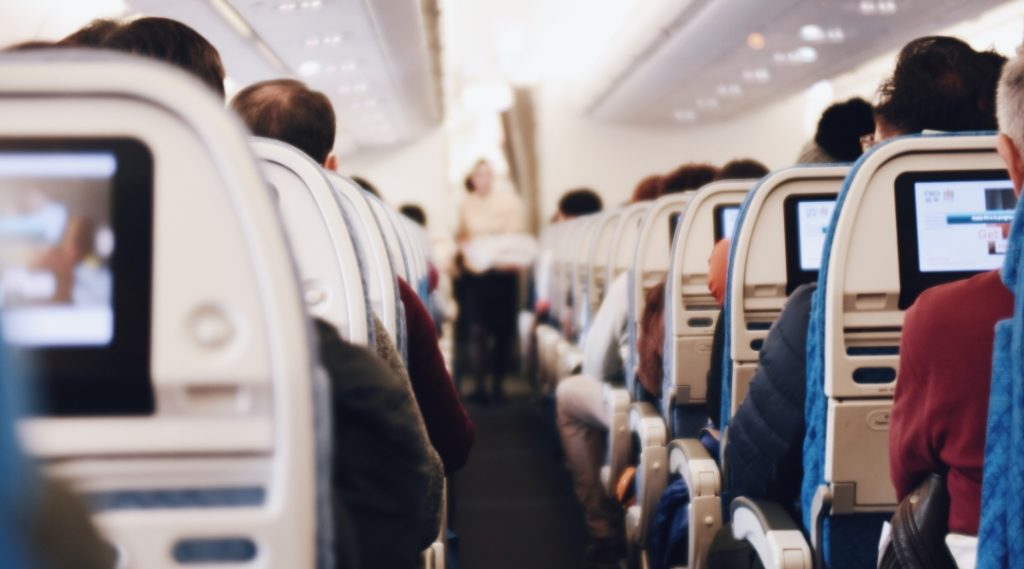
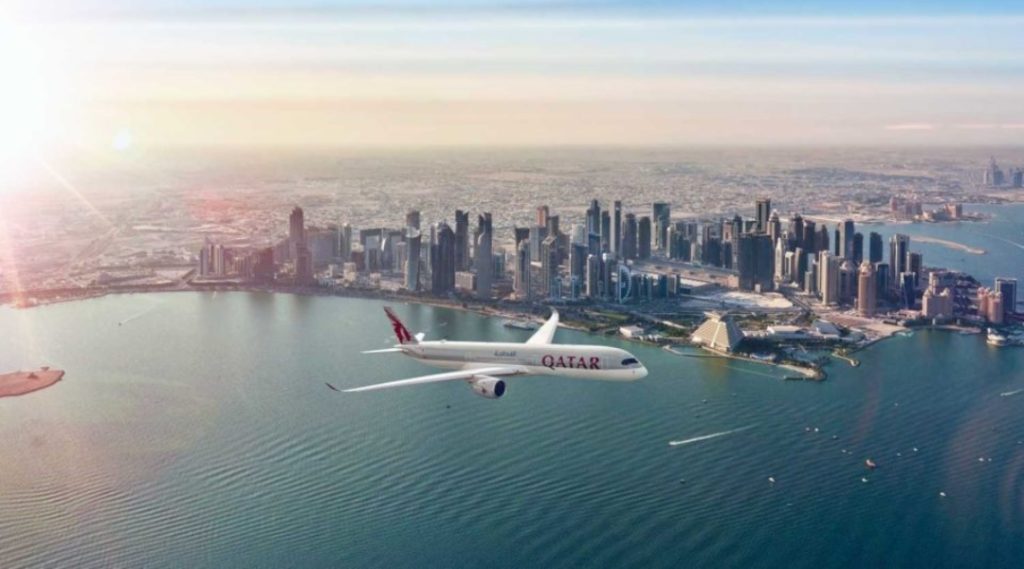
Navigating the pandemic
When news of the novel coronavirus broke out, airlines across the world have been active and pre-occupied with flying people to their homes, where they prefer to remain in case of lockdowns that did happen for varying periods of time in each country. Qatar Airways prides itself as one of the few airlines that remained operational during the pandemic. Country Manager of the Philippines Rohan Seneviratne says, “[We] worked closely with various government bodies and embassies around the world including France, Germany, Australia, Ireland, Canada, the [United States] and [United Kingdom] to bring people home safely.”
Etihad Airways was also able to manage and operate at this time given their “on-going restructuring programme, ” says Etihad Airways Vice President in the Eastern Region, Lindsay White. “We navigated these uncertain times with adaptability, responding quickly, and redeploying our fleet as the market changed.” The airlines deployed some of its aircraft on cargo routes to better accommodate the flow of essentials and support connectivity between the Eastern and Western markets.
With the distance that COVID-19 has enforced us, connectivity has become highly-valued more than ever. To respond to this need, Etihad has operated special flights from and through Abu Dhabi, including “goodwill flights to 30 [cities and more] around the world, including destinations are not normally served on the airline’s global route network,” White explains. Likewise, Qatar Airways operated 21 chartered flights to and from the Philippines, as well as 300 special repatriation charters. As Seneviratne says, “we were operating over 150 flights a week to over 30 destinations globally.” In April, Qatar Airways has over 1.3 billion revenue passenger kilometers (RPK), more than its next four competitors combined.
RELATED READS: 5 Of The Best Business Class Lounges Around The World
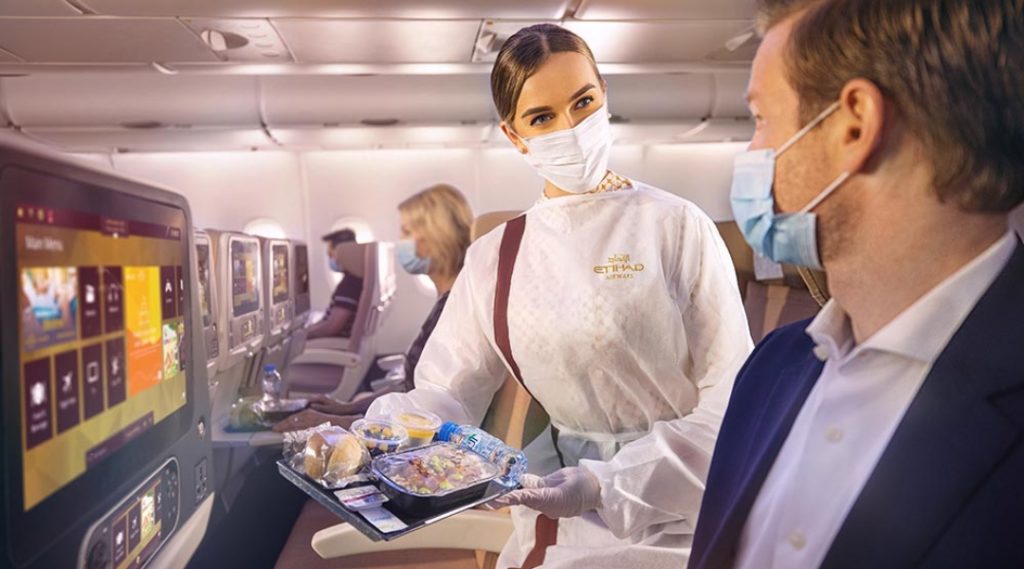
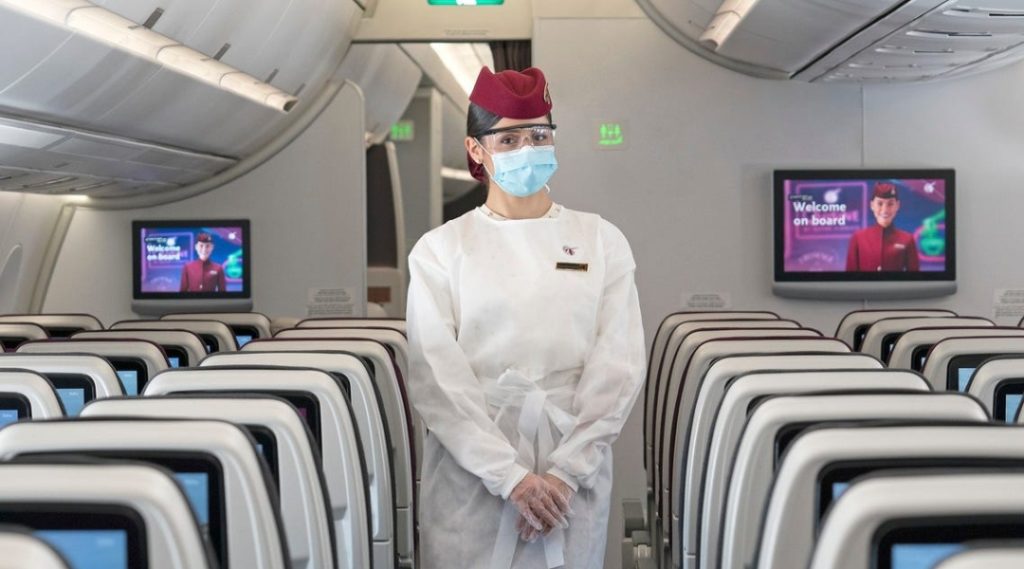
Here’s what to expect
While travel is still highly discouraged, it is inevitable there are those who would still need to return home or go on work trips. Thus, different airlines have implemented policies and measures to ensure the safety of their passengers. If you’re planning to fly with Qatar or Etihad Airways, you can be certain they practice precaution from the moment you get to their airport, in-flight, to the time you land to your destination.
For Qatar, their standard procedures include HEPA filters in aircraft, cabin crews wearing personal protective equipment (PPEs), strict bio-security screening, sanitation of every passenger touchpoints, social distancing in seats, closure of social areas, and complimentary protective kit. The kit contains a single-use surgical face mask, disposable gloves, and alcohol-based gels. In serving meals, business class passengers will receive it in trays together with cutlery wrap, single-use menu cards, and sealed refreshing wipes. For economic class passengers, meals will still be served normally but tightly sealed.
For Etihad, they launched Etihad Wellness, a comprehensive health and hygiene program. Wellness Ambassadors will provide essential travel health information to you and will accompany you to every point of your journey starting at Abu Dhabi airport. They highly encourage applying through the website to reduce contact with staff. Apart from the standard social distancing, provision of wellness kits, and wearing of PPEs of the cabin crew, Etihad implemented a self-service health check-in that reads your temperature, heart rate, and respiratory system. They also have thermal cameras in Abu Dhabi airport and APT surface swab technology that measures levels of virus and bacteria in their airport and aircraft. For meals, you will get single trays with additional dining offerings. They temporarily suspended Dine on Demand option for business class passengers, but you can still avail of their All Day Dining service.
RELATED READS: For These Companies, It Is Business As Usual, But With Purpose
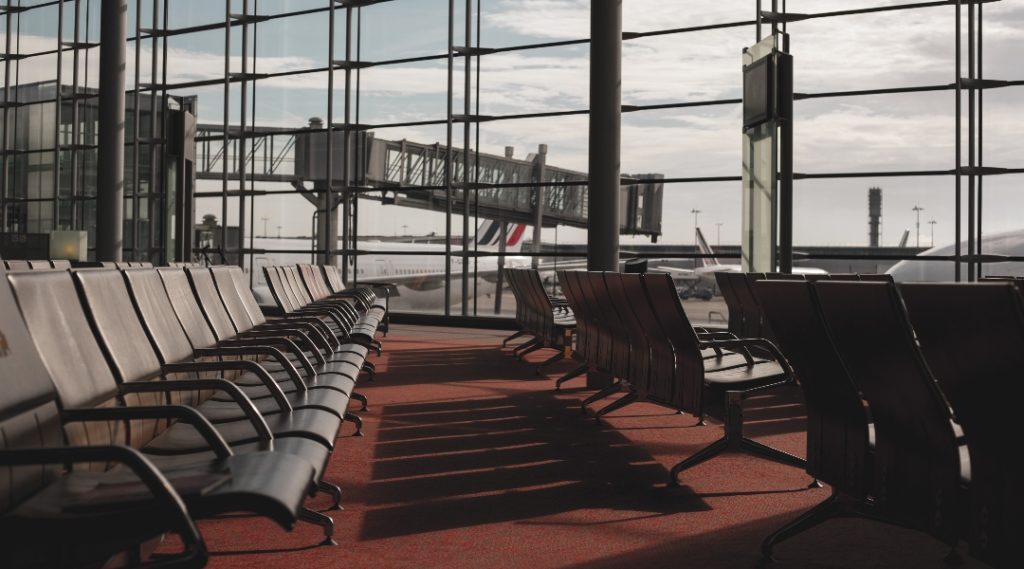
Future of travel
Aviation experts claim normal travels may not resume until 2023. The recovery timeline will stretch out for two full years but only after the world declares COVID-19 to be in full control. Until then, it appears airline businesses may survive, but passenger traffic will definitely not be at par with previous years. Of course, every airway has to come up with strategies to keep the business alive and operations running.
“Qatar Airways will continue to stay committed to its mission–to take people home safely and reliably,” Seneviratne says. “What we file is what we intend to operate,” he adds. By the end of July, they have served over 450 weekly flights to more than 70 destinations. Above all these targets, Qatar aims to maintain its status in the industry. “[We are also] the first airline in the Middle East to secure accreditation to the highest level in the IATA Environmental Assessment Programme,” Seneviratne proudly claims. The safety of the passengers is well on top of their priority, providing the best airline experience amid these tough times.
RELATED READS: 5 Ways To Cope With Anxiety In A Time Of Uncertainty

Similarly, Etihad Airways eyes a “phased approach with a possible transit-only basis to start with, followed by a resumption to normal operations, providing a bigger bridge to key destinations,” White clarifies. Keeping in contact with local governments around the world is crucial as well as knowing destination restrictions. These ensure the safety of passengers and a healthy in-flight environment. White declares, they will “work together as an organisation to get ready for the future and return passengers to the skies as soon as they are ready to fly.”
Although we are still uncertain of when the COVID-19 can be fully under our control, we can be assured that every operating airline is committed to its mission of flying us to our destinations with our utmost safety in mind. For now, we can do our part of following these standard procedures and hope for normal travel to resume quite soon.





